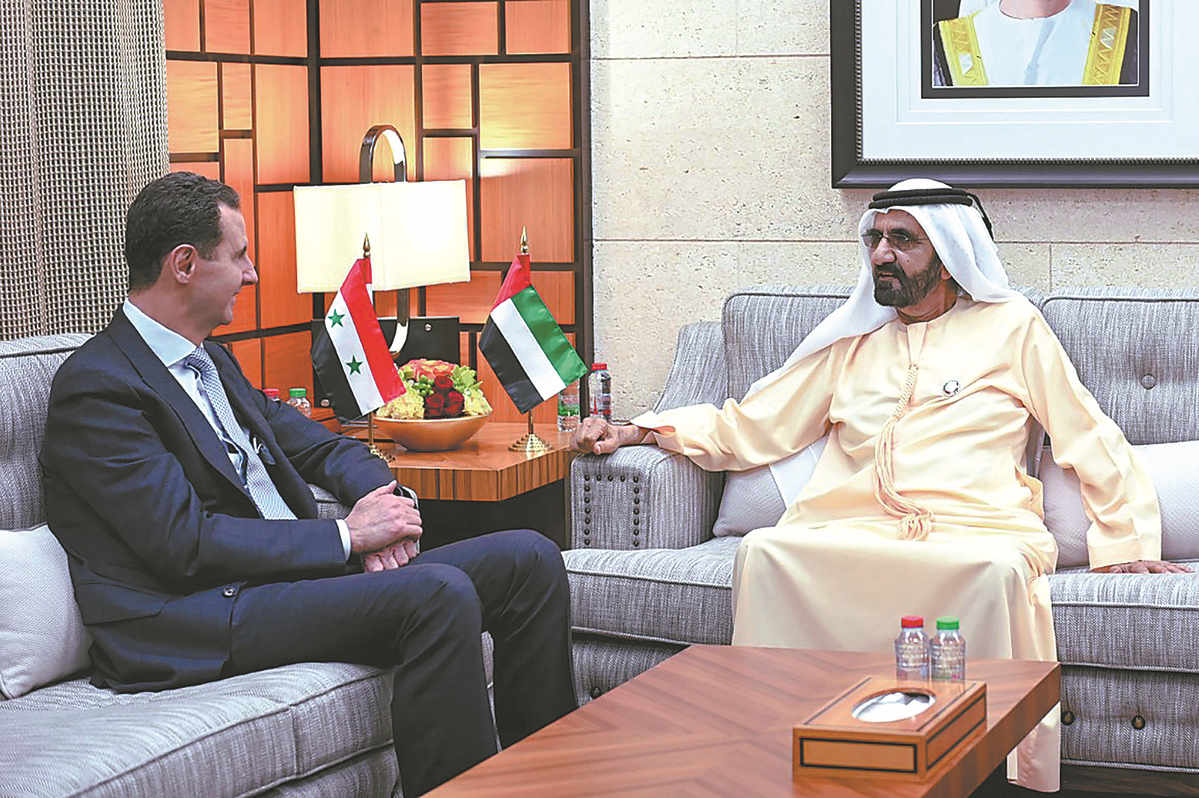Assad's UAE visit marks Syria's return to regional role
China Daily | Updated: 2022-03-21 09:30

AMASCUS - Syrian President Bashar al-Assad's visit to the United Arab Emirates on Friday, his first diplomatic trip to an Arab country since 2011, marks the beginning of Syria's return to its regional role despite US opposition since its suspension from the Arab League in 2011 after the outbreak of civil war in the country, experts say.
During his visit, Assad met the Crown Prince of Abu Dhabi Sheikh Mohammed bin Zayed Al Nahyan and UAE Vice-President, Prime Minister and Ruler of Dubai Sheikh Mohammed bin Rashid Al Maktoum and other senior UAE leaders.
Calling Syria a fundamental pillar of Arab security, the Abu Dhabi crown prince said the UAE is keen to strengthen cooperation with Syria to achieve the aspirations of brotherly Syrian people toward stability and development, the UAE's official WAM news agency reported.
Hussam Shuaib, a Syrian political expert, said the UAE provides Syria the gateway back into the Arab League and its role in the Arab world.
"It's without a doubt that the political significance of this visit would reflect positively not only on bilateral ties, but on Syrian-Arab relations in general," Shuaib said.
The visit also implies trade opportunities from the Arab world for Syria to fight economic sanctions imposed by the United States and its Western allies.
"As a result of the economic situation and ongoing conflicts, Syria ... also needs cooperation on the economic level, and there should be coordination on reopening as well for bilateral trade in goods," he said.
The UAE itself is interested in thawing ties with Syria "because the UAE needs to get rid of the Yemeni quagmire, and so is Saudi Arabia. Both apparently want to rearrange political relations with Iran, to which Syria is a close ally", Shuaib said.
Nonetheless, Syria's reintegration into the Arab world could still be bumpy enough, especially amid US hindrance.
In a statement responding to Assad's visit to the UAE, the US State Department said it was "profoundly disappointed and troubled" by what it called an apparent attempt to legitimize Assad.
"The Gulf countries, especially Saudi Arabia and the UAE, have begun to look at the future of relations with Washington, and relations with other countries of the world from the perspective of their interests," said Emad Salem, another political expert.
Xinhua
























